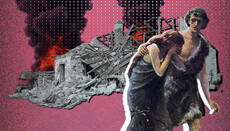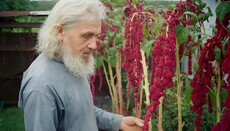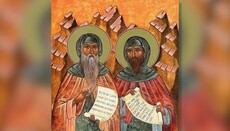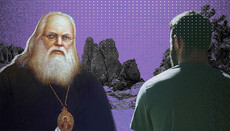Theology of the potter's wheel: What does time mean for a Christian?
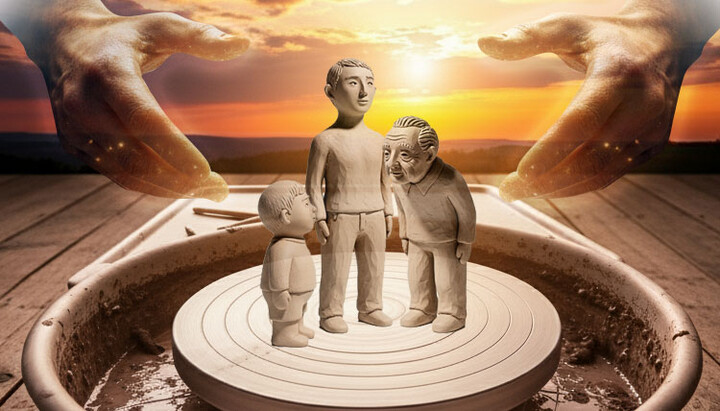
September 14 is the day of the the ecclesiastical New Year. We reflect on the nature of time, its subjectivity, and how Divine Providence works in our lives.
September 14 is the day of the ecclesiastical New Year in the Orthodox tradition. The holiday is called the "Beginning of the Indiction" and marks the start of the new ecclesiastical year. The tradition came from Byzantium. The ecclesiastical New Year did not shift to January 1, as that would have disrupted the established liturgical order.
Time is God's creation
In the flow of time, it is impossible to place a marker and say, "Here is the beginning, and here is the end." It's like trying to stick a rod into a rushing mountain stream.
Time is as much a creation of God as everything else, but it has its own specificity, which we often refuse to notice.
First of all, time exists only in the present. It is not in the past, nor in the future. The past is the realm of the nonexistent, something that lives within a person as memory. Human memory, like the memory of an individual, is something fragile and elusive, more like yesterday’s dream than reality. Some things fade from memory, while others remain. The coronavirus, which once seemed to occupy every cell of our brain, has become part of memory. And the war, which has been going on for several years, feels as if it has been present in our lives for ages.
As for world history, the memory of humanity is recorded in the form of historical monuments and documents, which historians interpret as they see fit. We do not have and never had objective history textbooks. Any history is written to suit someone's opinion.
History is presently written by winners. It is not about what once happened, but about how you are supposed to understand it correctly now.
Therefore, after any revolutions and coups, the first thing they start doing is rewriting history textbooks.
Moreover, there is no time in the future, which has not come yet. Everything we think about what might happen to us there are just our fantasies, dreams, hopes, or fears. Time exists only in the present moment – here and now. All "old" and "new" years, everything that has been and everything that will be, exists only in our minds and nowhere else. Just like our memories of offenses, traumas, past happiness or misfortune are all baggage carried by our brain. If you throw it out, it disappears once and for all. This is an important point in the spiritual life. There are no actual offenses – only thoughts about being offended. Discard the thought, and the offense vanishes.
Time as a personal experience
Secondly, even the time that is "here and now" is also only in our heads and directly depends on it. There is a science called chronobiology. It has proven that a person's internal chronometer (if, for example, they are in an enclosed space without a clock and do not see the change of day and night) can stretch the day. The biological cycle there begins to work completely differently. Speleologist Michel Siffre, who spent 63 days underground at a depth of 130 meters, was convinced that he had lived there for only a month. The flow of time is subjective and depends on many factors.
Moreover, time can have several flows within a person simultaneously. Personally, it seems to me that, on the one hand, weeks, months, and even years flash by like poles outside the window of a speeding train; and on the other hand, there is a feeling that the war we are now experiencing has been going on for many decades.
The potter's wheel of time
Thirdly, the task of time is not to flow from the past to the future. Its function is different – to change what lives in the present.
Time is the potter's wheel in the hands of the Heavenly Master. The birth of a person is a lump of clay thrown onto this wheel. Leaving earthly life is the removal of the finished vessel from the wheel..
Time is the rotation of the wheel where the hands of Divine Providence create what the Lord has decided in His plan. Of course, only a very humble person can be compared to pliable clay; our willfulness does not always lead to the result intended by the Potter.
Time is the only truly valuable thing for us. In essence, it is all we have. And how and where we spend it determines where we will be after time runs out. But the greatest mystery is that we do not know how much of this time we have left.
Reflecting on the work of this potter's wheel of time, I asked myself the question: "Where would I like to press 'stop'? At what point of my personal life story would I like to stop its rotation and stay there forever?"
It is not so much about the circumstances of external life as about the internal state of oneself. Unfortunately, nowhere – neither in childhood, nor in youth, nor in maturity, nor in my current state – have I found such an opportunity. There is not a single moment where I would like to say: "Master Chronos, stop your run, I want to fix myself here." This means I am not yet ready to leave this rotating wheel.
Time teaches us to live not in the past or the future, but in the present – to be the way we would like to remain forever in eternity.

